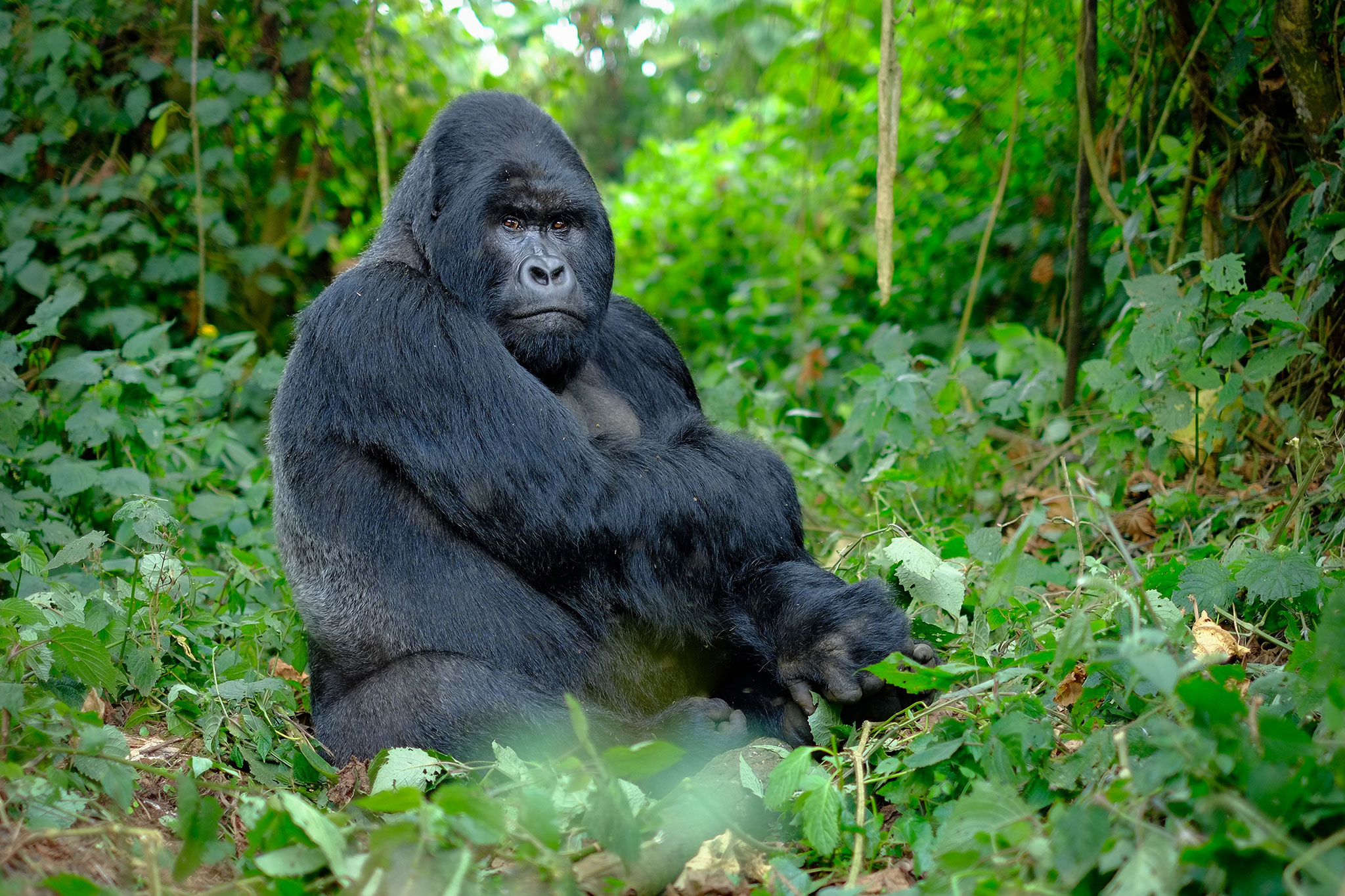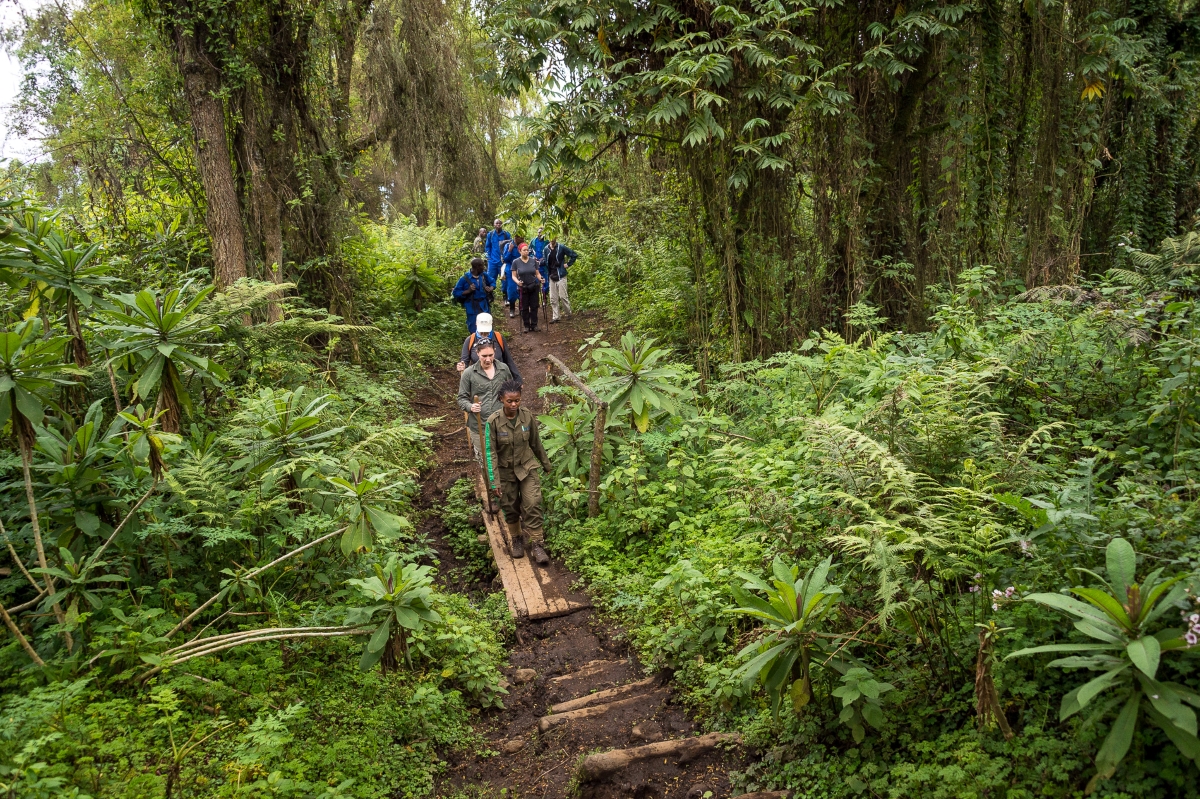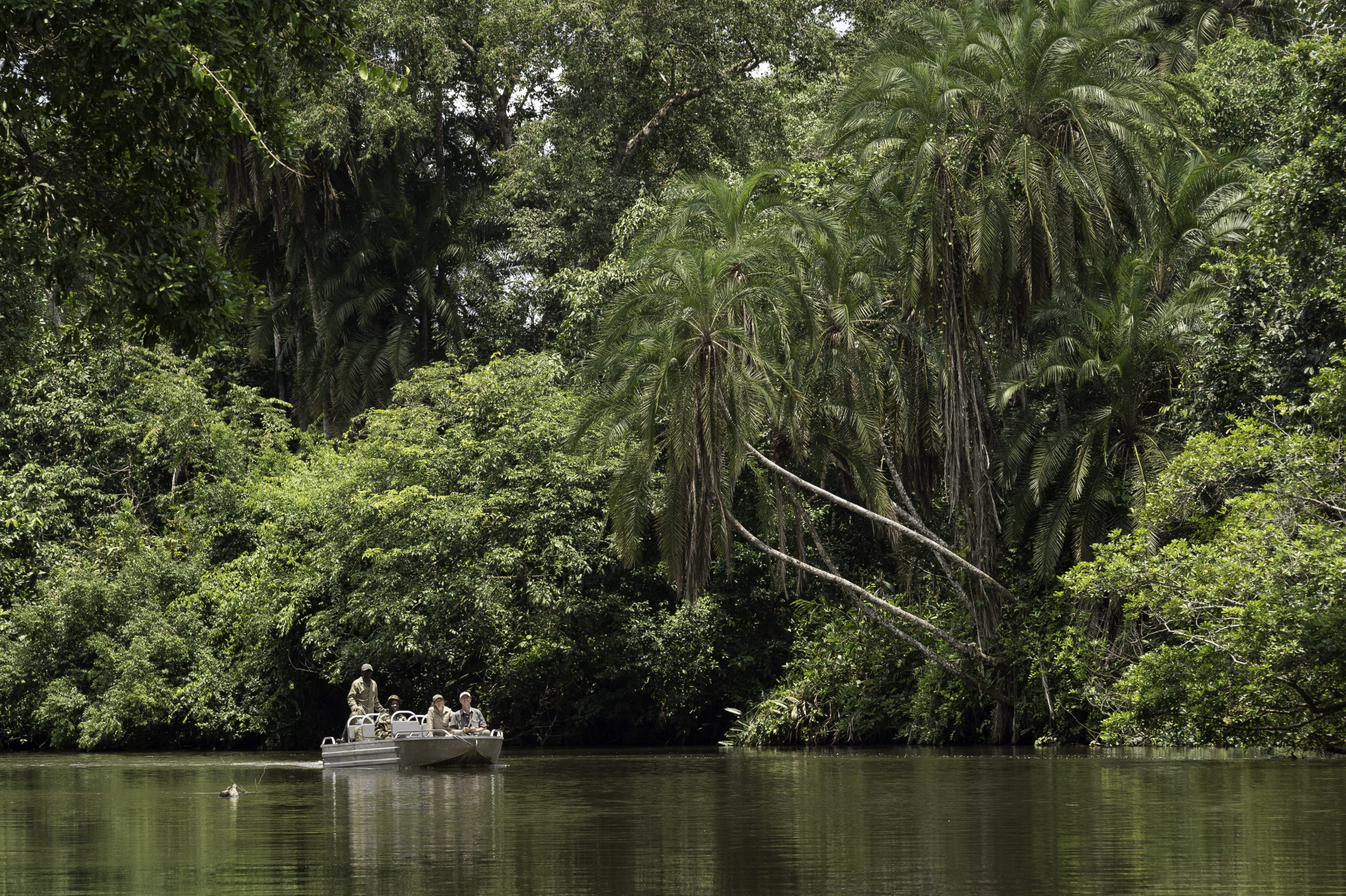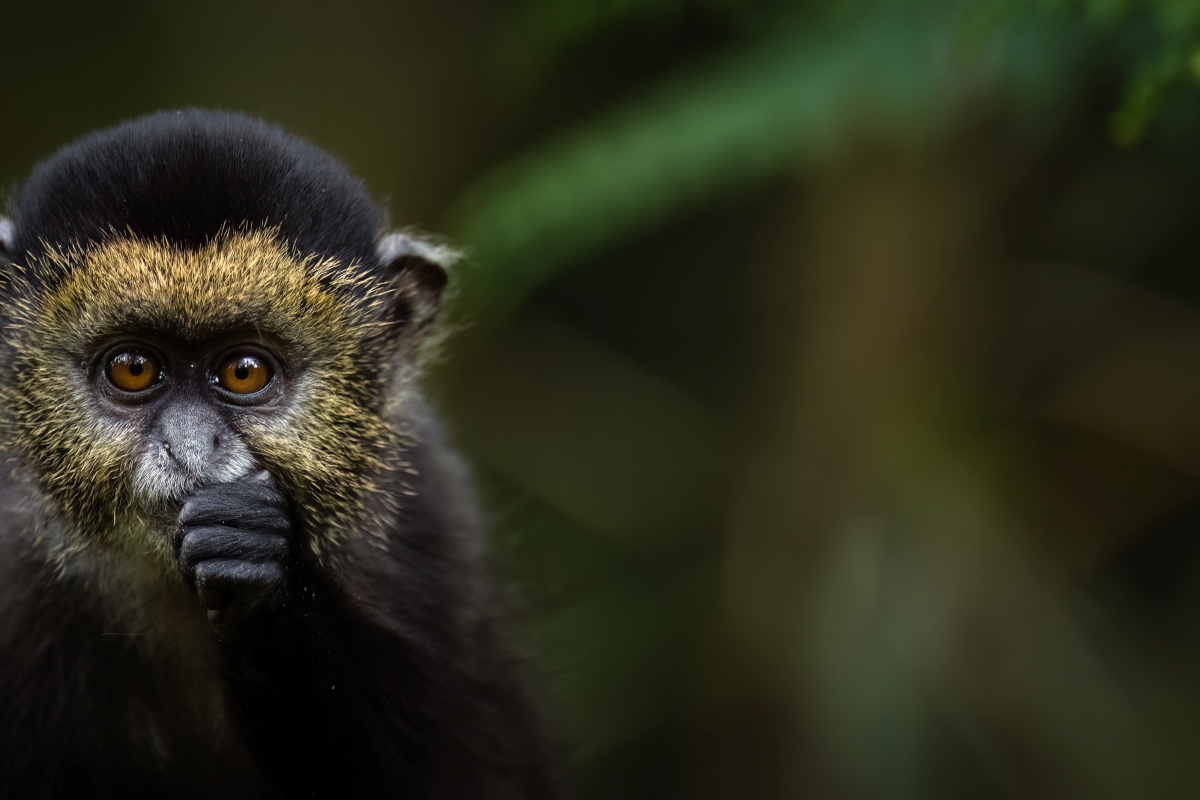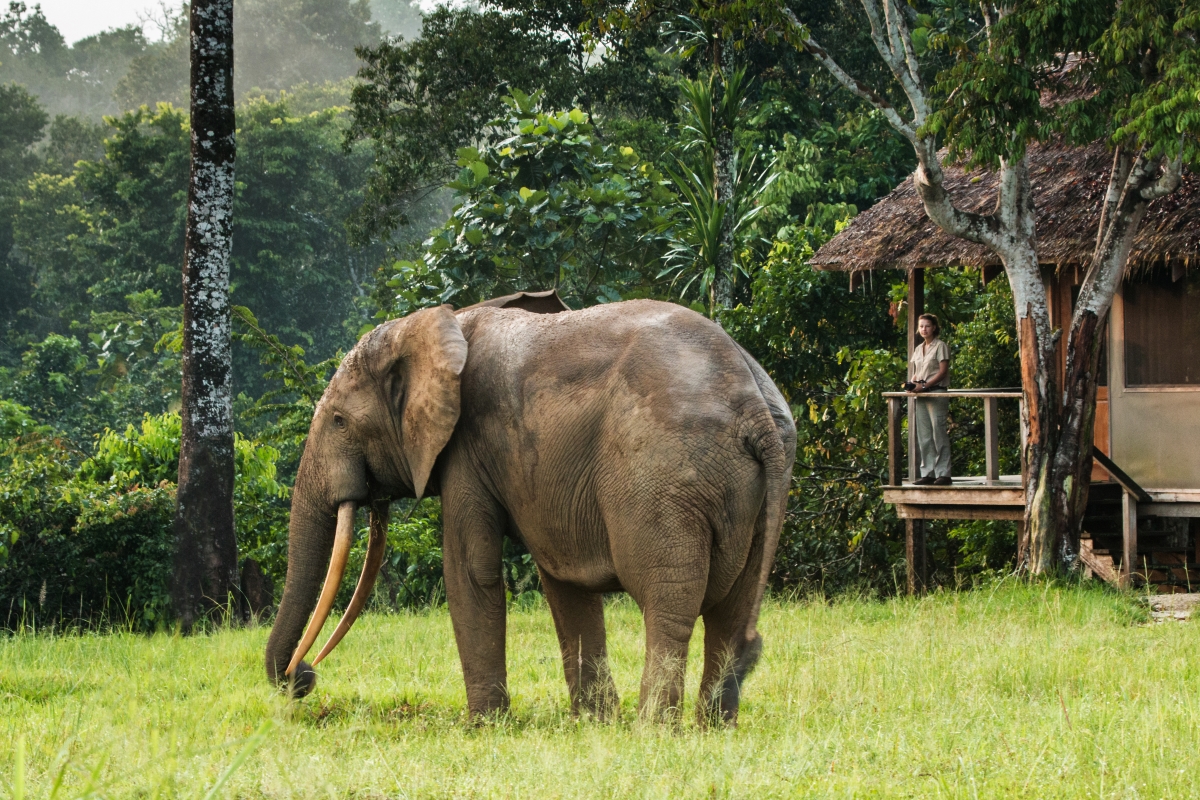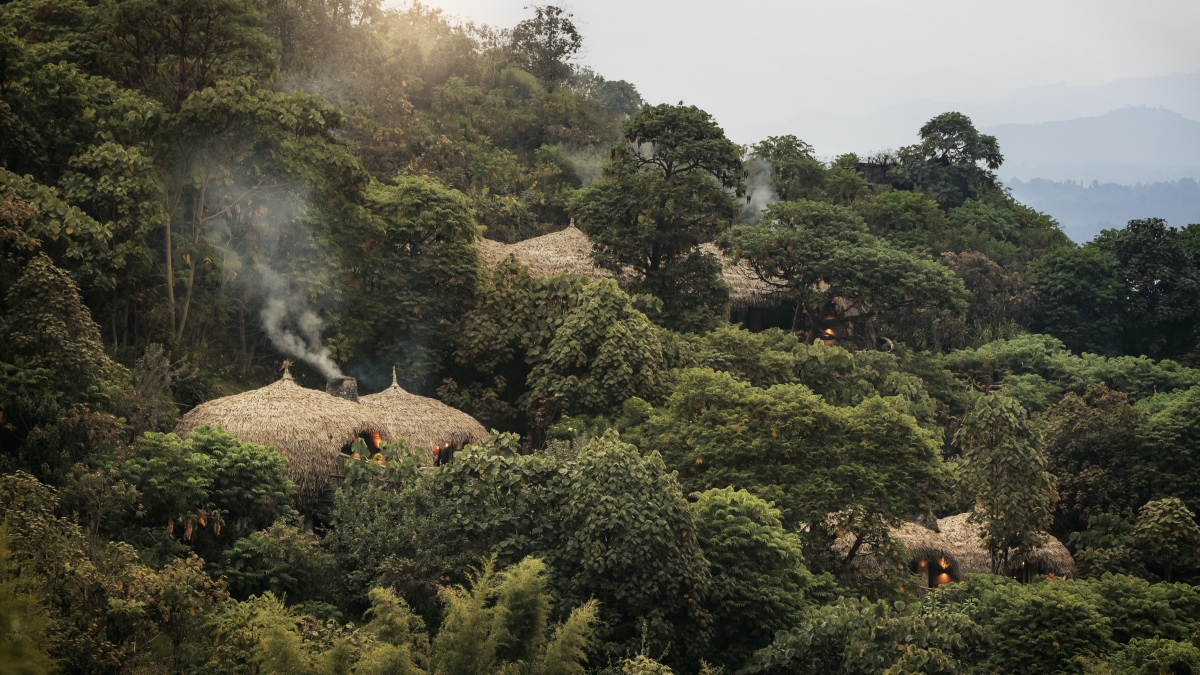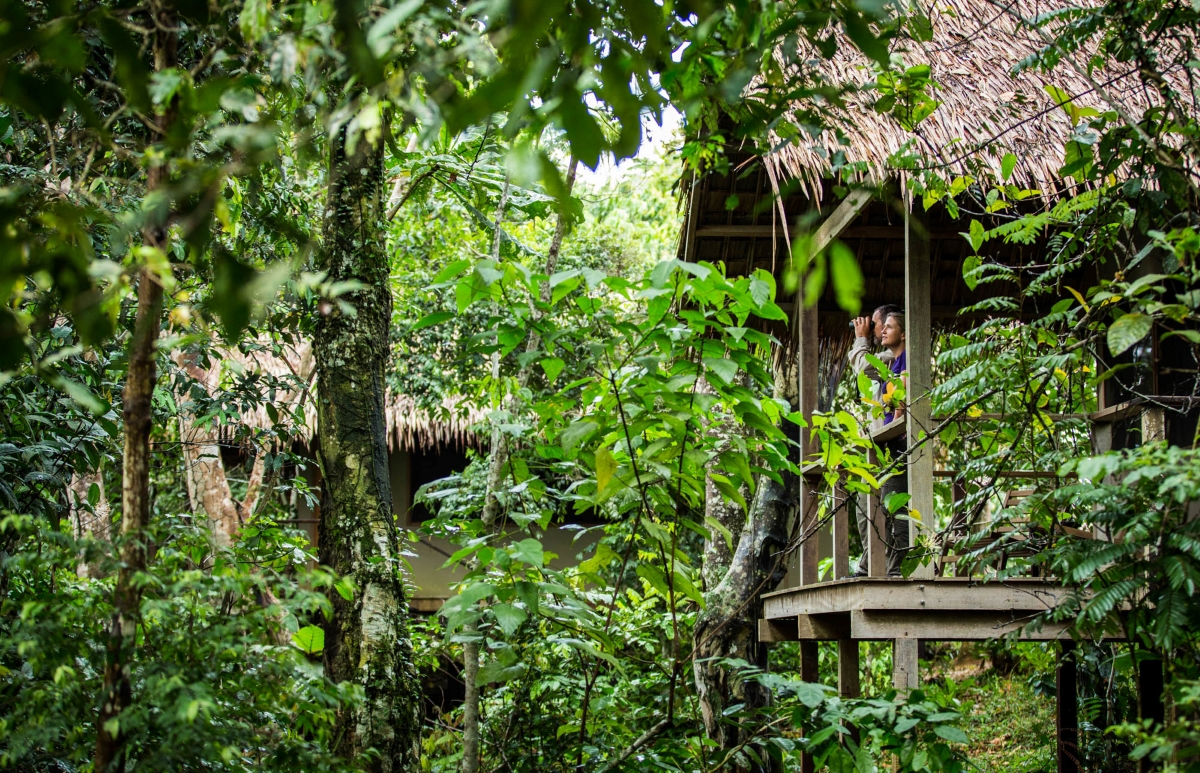As remarkable and mysterious as our continent is, it’s only natural that there will be FAQs about African safaris. And at Rhino Africa, we’re all about embracing this wild side and leading you through your rabbit hole of peculiar ponderings. So, let’s delve into some of the most common queries and sprinkle a bit of zest into your safari planning.
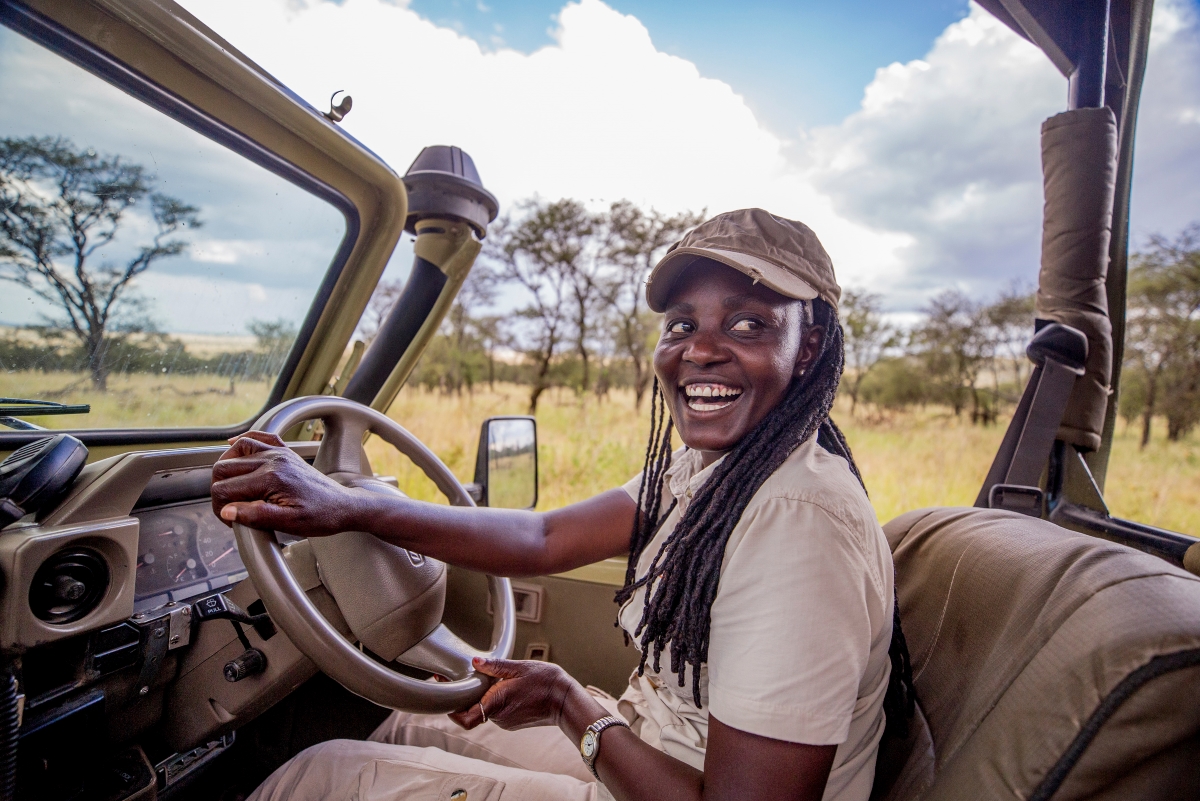
We’ll guide you through all your FAQs about African safaris, Image Credit: Dunia Camp
1. Is an African Safari Worth it?
When it comes to FAQs about African safaris, this is probably the easiest one to answer! An African safari is not just a vacation. It’s an immersive journey that transports you deep into the heart of nature. An escape from the urban sprawl and corporate confines, here the rhythm of life is set by the rising and setting of the sun, with every moment being a revelation and every encounter with wildlife a brush with the extraordinary.
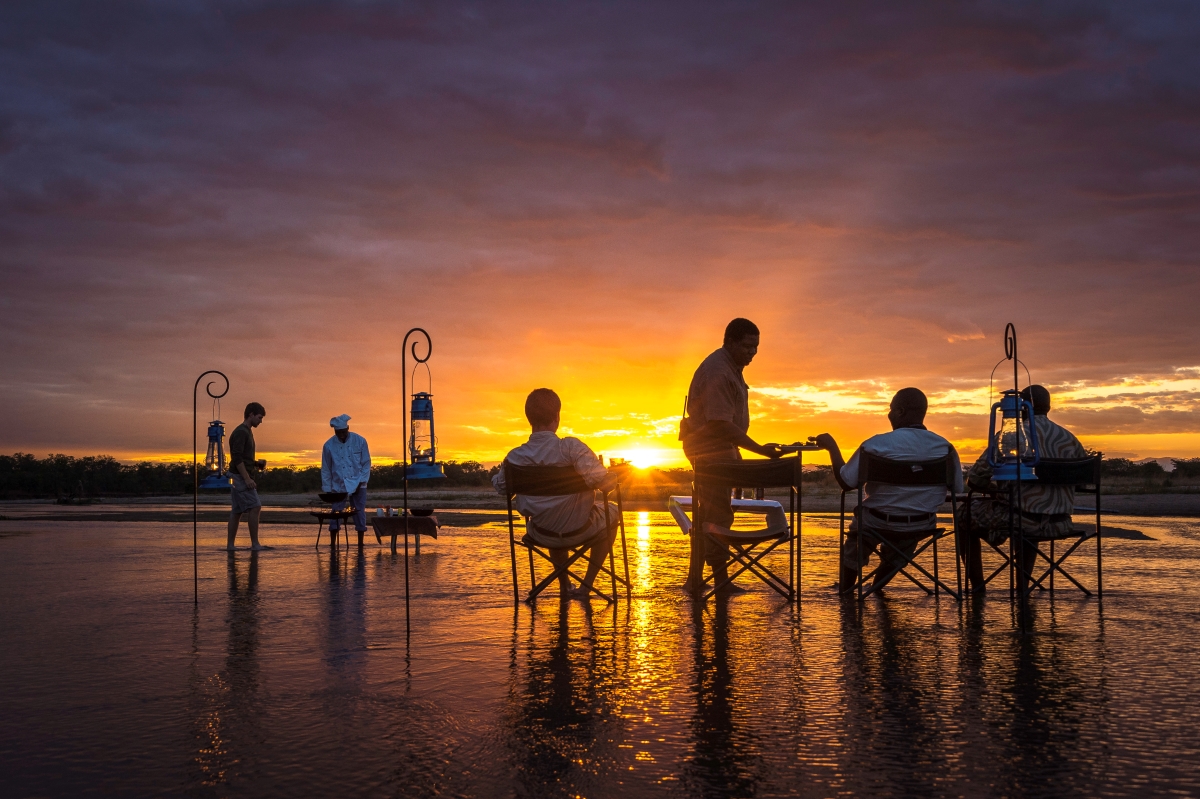
An exclusive safari experience in an unspoilt environment, Image Credit: Zungulila Bushcamp
What sets an African safari apart from any other holiday is the sheer diversity and abundance of wildlife. It’s a place where you can witness the majestic Big 5, go gorilla trekking, marvel at the Great Wildebeest Migration, and observe countless other species in their natural habitats.
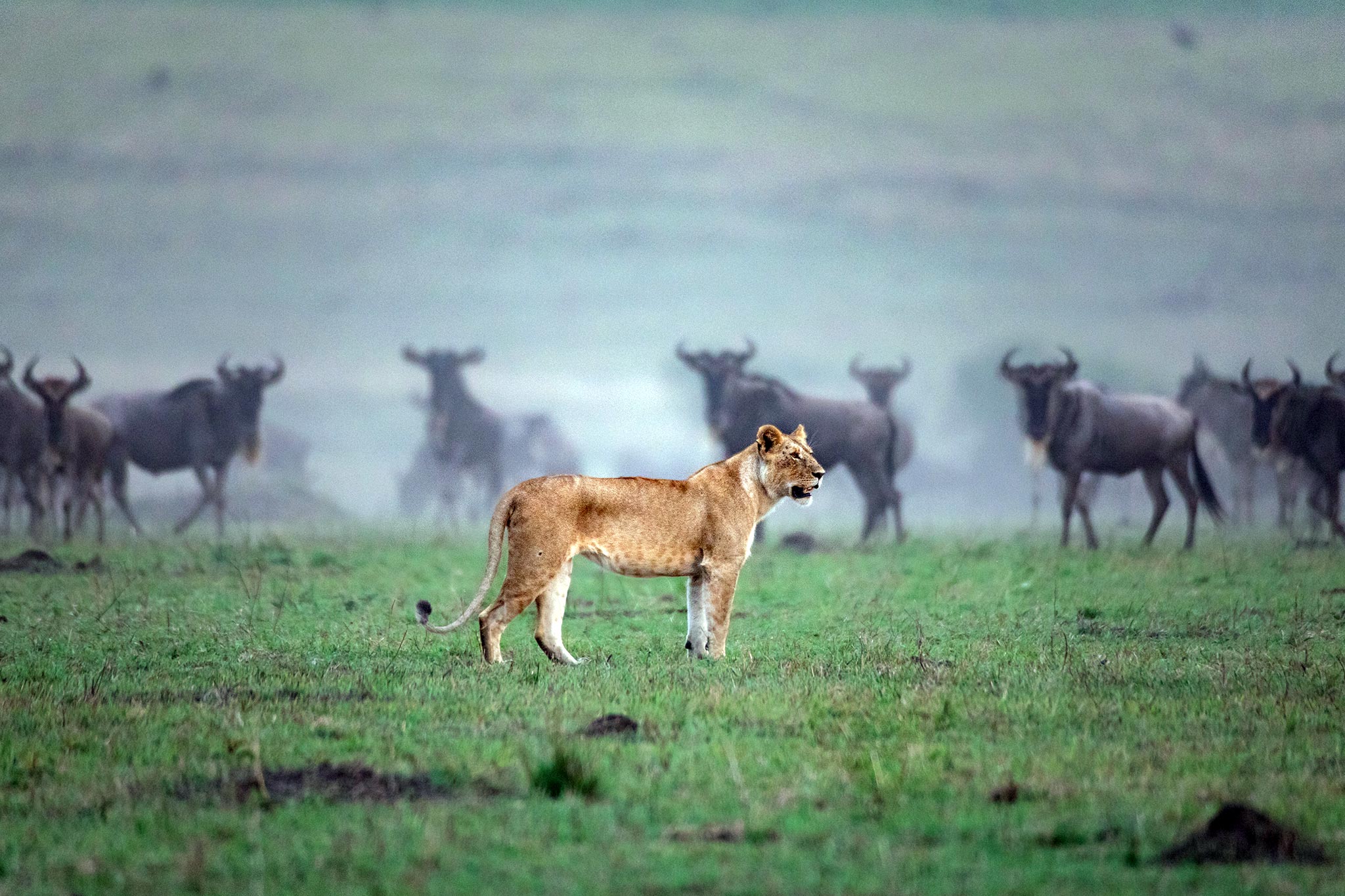
Experience the thrill of Africa’s wildlife
Moreover, it allows you the opportunity to immerse yourself in the cultures and traditions of the people who call these wildlands home. You can dine under the stars, listen to tales of tribal folklore, or visit local villages to gain insights into a way of life intimately connected to the land.
So, to put it succinctly, is an African safari worth it? Absolutely, positively, unequivocally – it most certainly is!
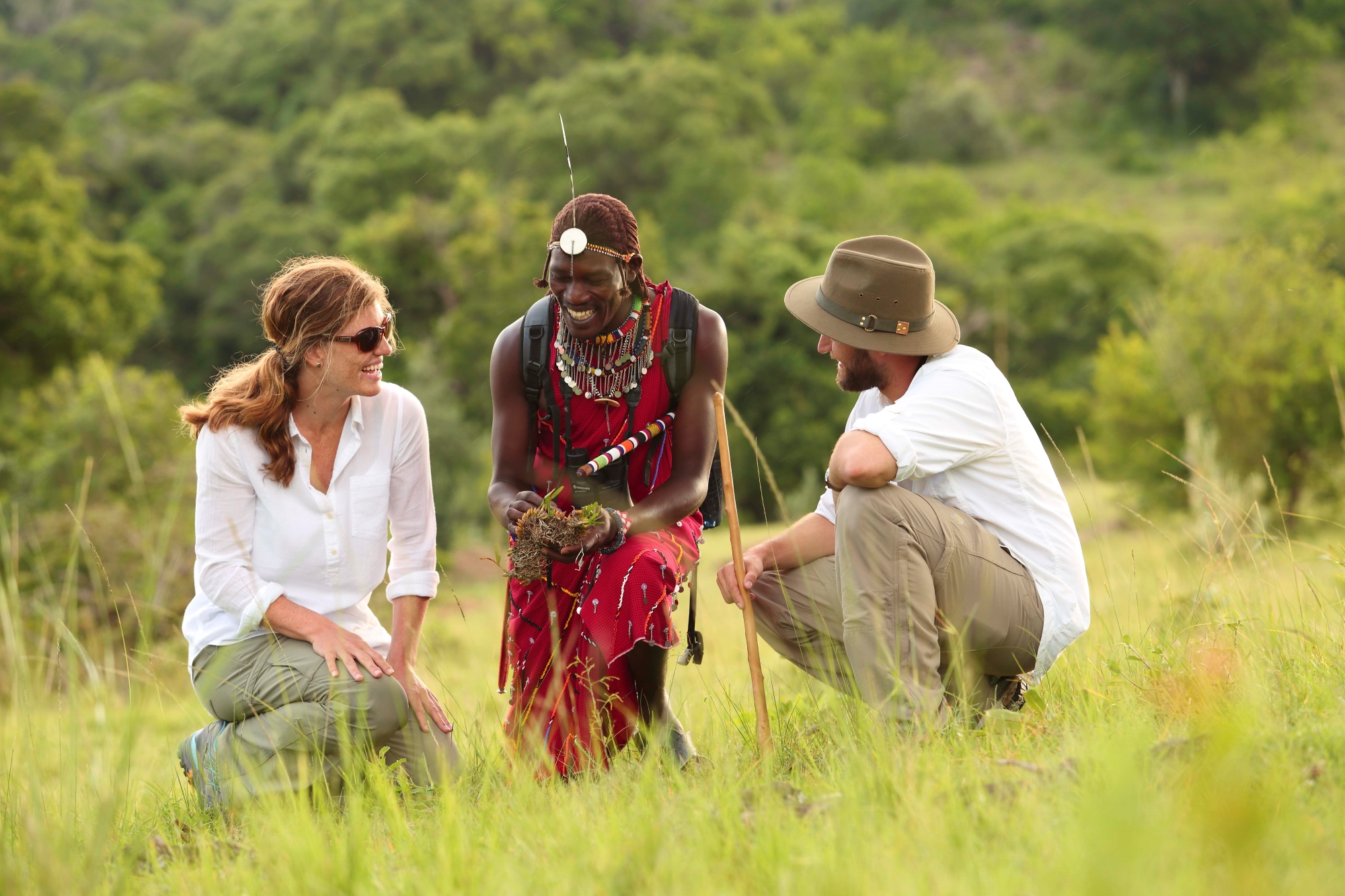
Discover the wonders of Kenya’s wilderness on foot with traditional Maasai naturalists, Image Credit: Angama Mara
2. Which Country is Best for Your African Safari?
When deciding on your ultimate African safari destination, it’s all about what tickles your adventure bone…
For a Classic Big 5 Safari
If you’re itching for an encounter with Africa’s most esteemed wildlife personalities, namely those iconic A-listers (lion, leopard, elephant, buffalo, and rhino), look no further than South Africa, Kenya, Tanzania, or Zimbabwe.
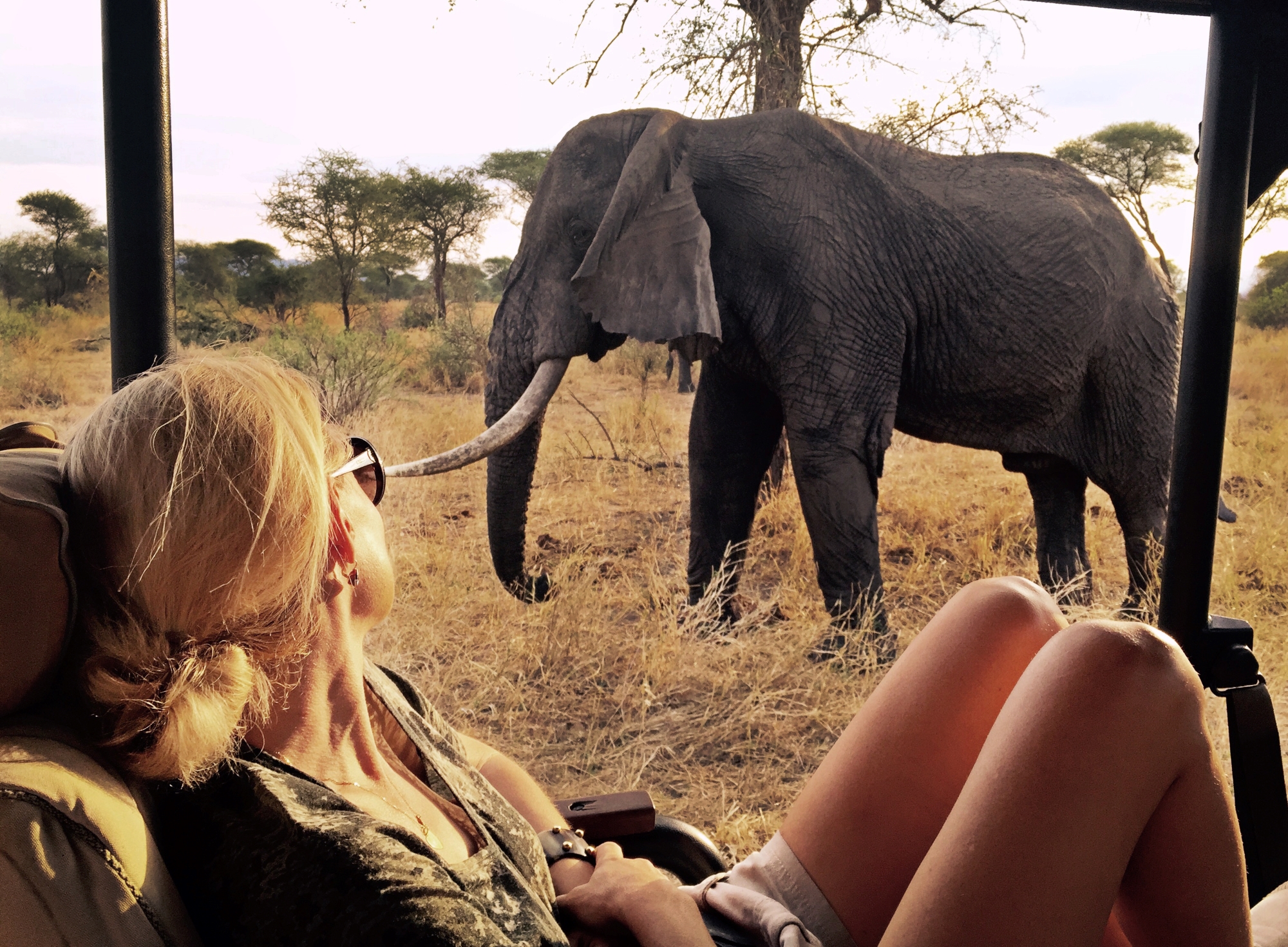
Seeing the Big 5 is a highlight for any wildlife enthusiast, Image Credit: Little Chem Chem
For a Great Migration Safari
Witness the mother of all wildlife migrations in Tanzania’s Serengeti National Park and Kenya’s Maasai Mara National Reserve – it’s a never-ending cycle, influenced by the East African climate and a constant quest for better grazing spots.

The Great Migration is a testament to nature’s resilience and majesty
For a Water-Based Safari
For an African safari that seamlessly combines both land and water-based adventures, look no further than the Okavango Delta in Botswana. Here, you can explore meandering waterways, marshes and rivers, either by boat or mokoro (traditional dugout canoe), immersing yourself in the pristine beauty of this unique ecosystem.
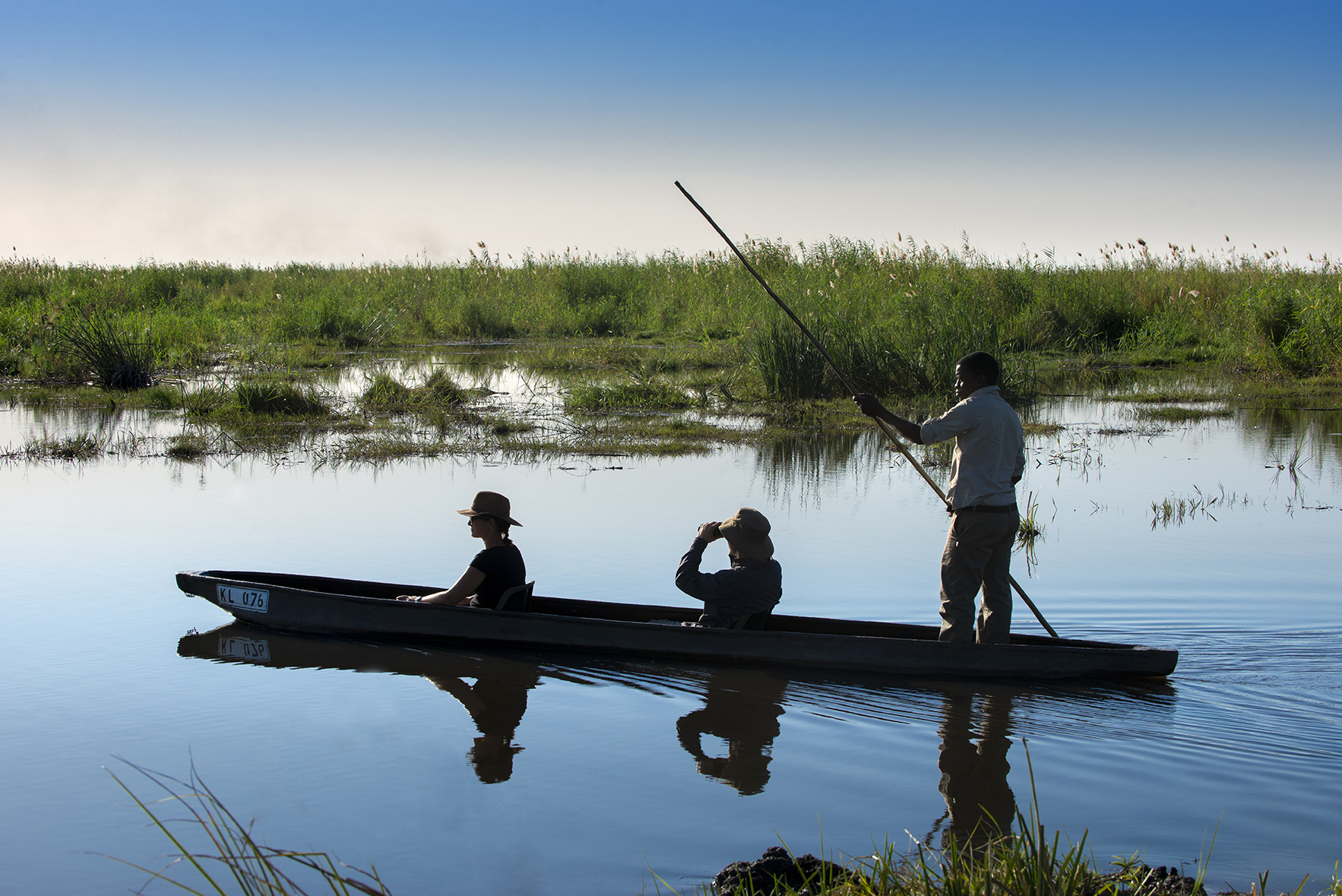
The Okavango presents exciting water-based game-viewing opportunities, Image Credit: Linyanti Bush Camps
Additionally, the majestic Victoria Falls and the Zambezi River, which forms a natural border between Zimbabwe and Zambia, are also amazing destinations for an African safari that incorporates both land and water safari adventures!

A great way to relax and enjoy the spectacular beauty of the Zambezi, Image Credit: Royal Chundu
For a Walking Safari
There are many incredible places to add a walking safari to your bucket list dreams, but our top pick has to be South Luangwa National Park in Zambia. South Luangwa is renowned as the birthplace of the walking safari and invites you to embrace your pioneering spirit and take a walk on the wild side.
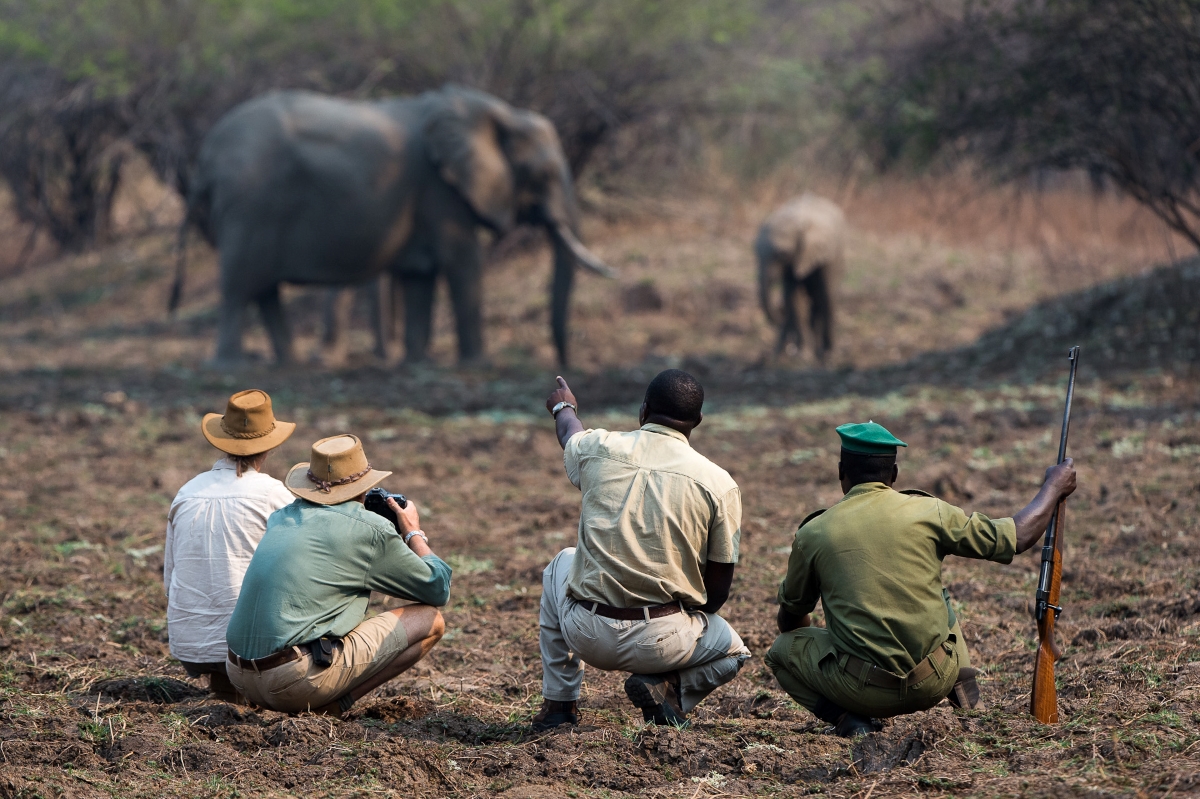
Going on walking African safari is one of our favourite ways to experience the wilderness, Image Credit: Nkwali Camp
For Gorilla Trekking
For a truly exceptional and intimate encounter with our primate cousins, few experiences rival the thrill of gorilla trekking. When it comes to this remarkable adventure, the top spots that immediately spring to mind are Volcanoes National Park in Rwanda and the Odzala-Kokoua National Park in the Republic of Congo.
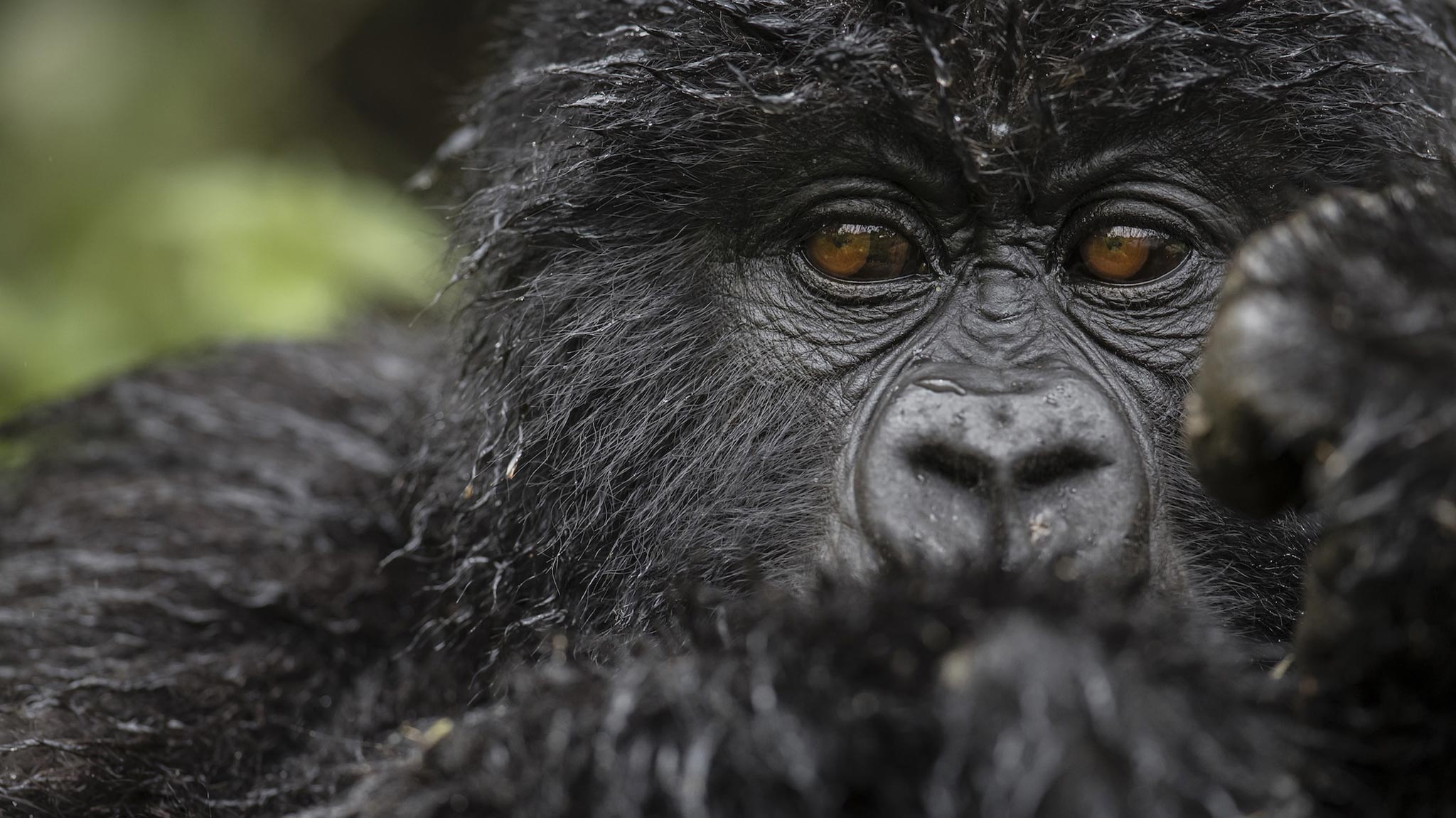
Rwanda is home to some of the world’s last remaining populations of mountain gorillas, Image Credit: Singita Kwitonda
3. What’s the Price of an African safari?
The budget for your African safari extravaganza is like a safari itself – diverse! It’s a wild mix influenced by your chosen destination, duration, group size, and your appetite for extraordinary experiences. We’re talking ballpark figures of anywhere from $150 to $3000 per person per night.
For a precise safari savings plan, hop onto our website, where we have a treasure trove of tailor-made safari tours to help you discover pricing particulars that match your wildest dreams.
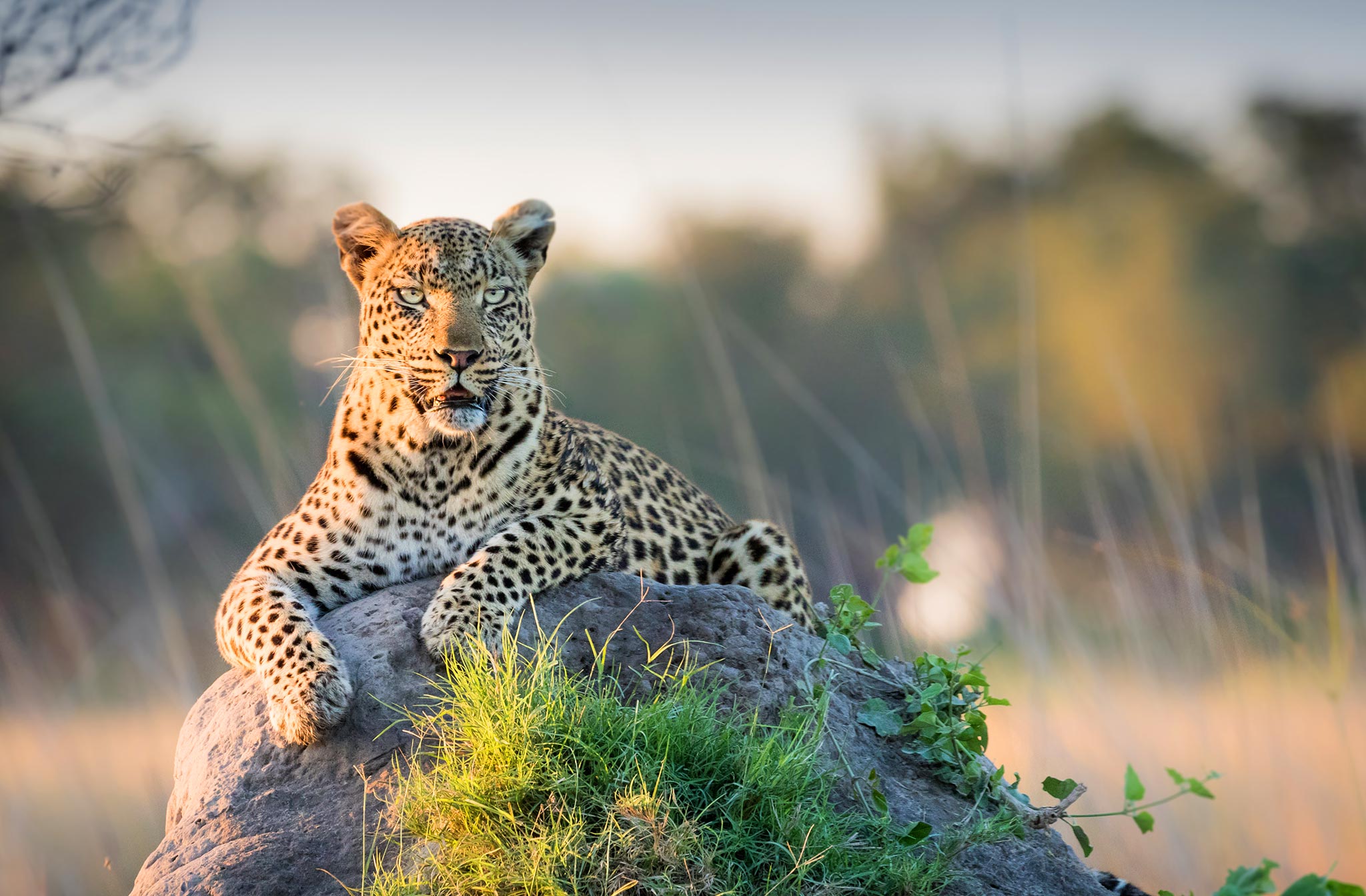
Africa is brimming with all sorts of wildlife surprises
4. How Much to Tip Your Safari Guides?
Tipping is a way to express gratitude and show appreciation as you explore nature’s wonders. While the exact tip amounts can be as elusive as a leopard in tall grass, a typical safari tip tipple lands somewhere around $10 to $20 per person per day for your guide and about $5 to $10 per person per day for the camp crew.
But remember, the tribal law of tipping varies from camp to lodge, so it’s always wise to check with your dedicated Travel Expert before making it “rain”. For more clarity on tipping culture, take a look at our Guide to Tipping in Africa.
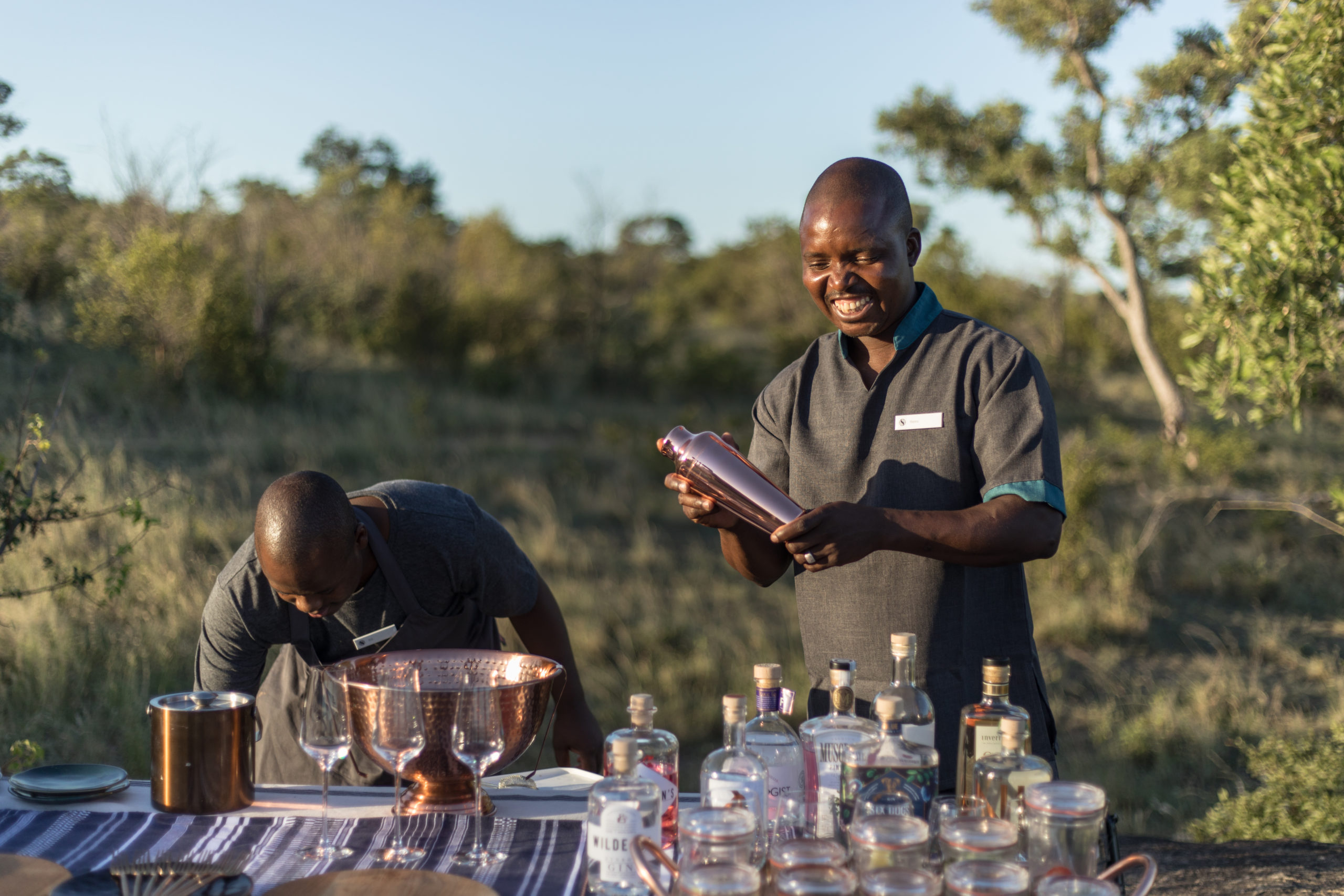
The staff at safari lodges collectively make your stay as magical as possible
5. When’s the Prime Time for an African Safari?
When plotting your African safari, a dash of reconnaissance can save you from unexpected plot twists. Imagine arriving in Tanzania, all set for the Great Migration, only to discover that the star-studded cast is still taking their bows over in Kenya. Not ideal!
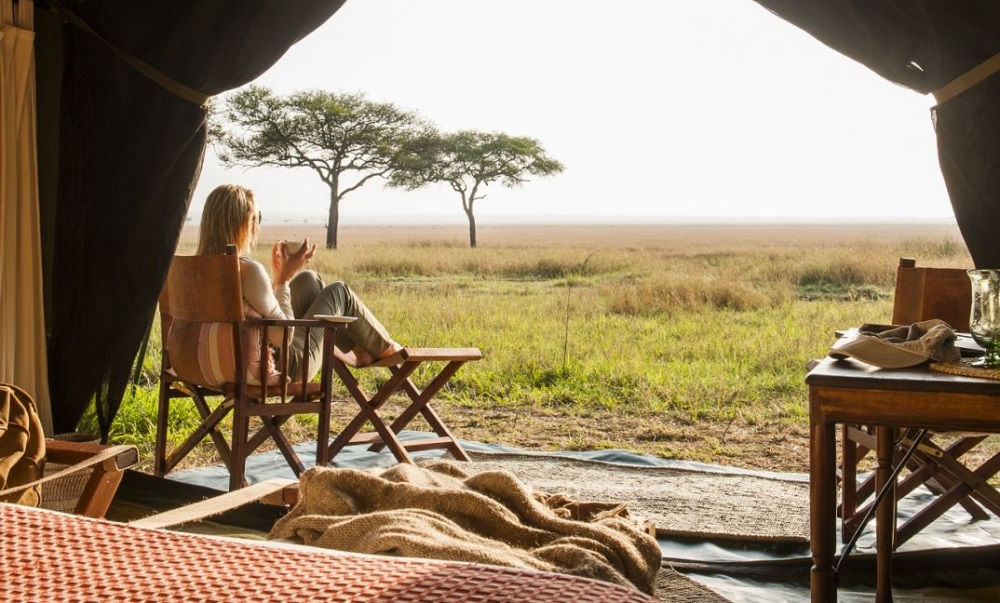
We will be your guides to make sure you don’t miss out on any of the action, Image Credit: Nomad Tanzania
What you should keep in mind is the switch between dry and wet seasons in different regions. Dry seasons are prime for animal sightings due to sparse vegetation and limited water sources, while wet or green seasons bring lush landscapes, animal births, fewer crowds, and some pocket-friendly deals.
When it boils down to it, it all depends on your desired safari style and destination. For a deeper dive into the safari scheduling matrix, check out our ultra-handy African Travel Calendar.
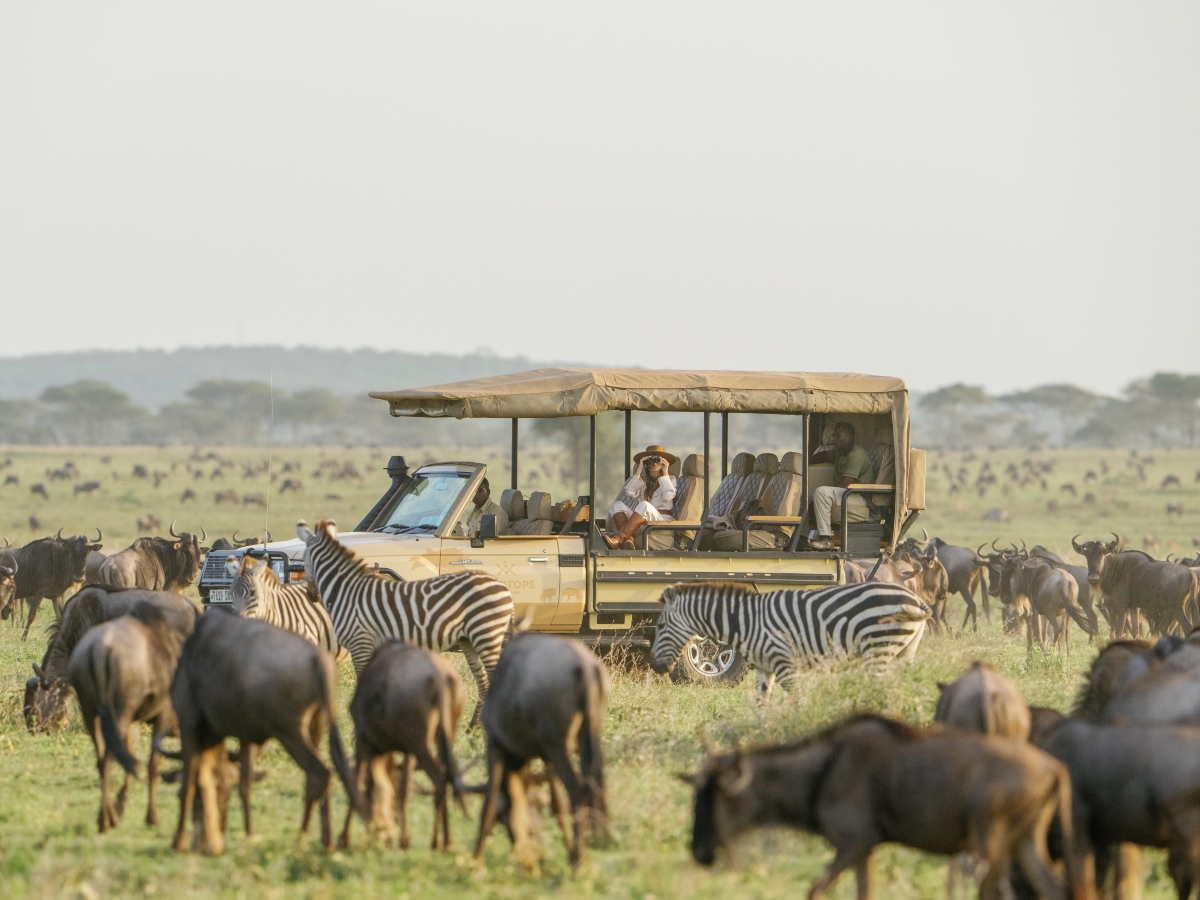
Millions of wildebeest, followed by gazelle and zebra, make their way through the Serengeti, Image Credit: Serengeti Bushtops Camp
We’ll be Your Safari Sherpas
Planning an African safari isn’t just about maps and itineraries; it’s about embracing the wild with open arms and a dash of audacious curiosity. However, we do have all the answers to your FAQs about African safaris if you need them!
For tailored insights to your questions and a personalised safari experience, get in touch with us today, and let’s start planning!


